The state of ecommerce trust in 2024 [Original Research]
![The state of ecommerce trust in 2024 [Original Research]](/content/images/size/w1440/2024/06/ecommerce-trust-2024-1.png)
Every two years, we dive into the minds of consumers to uncover what influences their trust in ecommerce sites. When we last ran our survey in 2022, we were in the thick of the pandemic. As life returns to normal, we're seeing new concerns emerge, especially with the rise of AI and the never-ending stream of data breaches affecting big names like AT&T, T-Mobile, and 23andMe.
In this article, we’ll share the latest insights from over 550 consumers, collected via SurveyMonkey Audiences, to help you understand what’s on the minds of shoppers today and how you can build their trust in your ecommerce site.
97% of consumers have concerns about shopping on unfamiliar sites
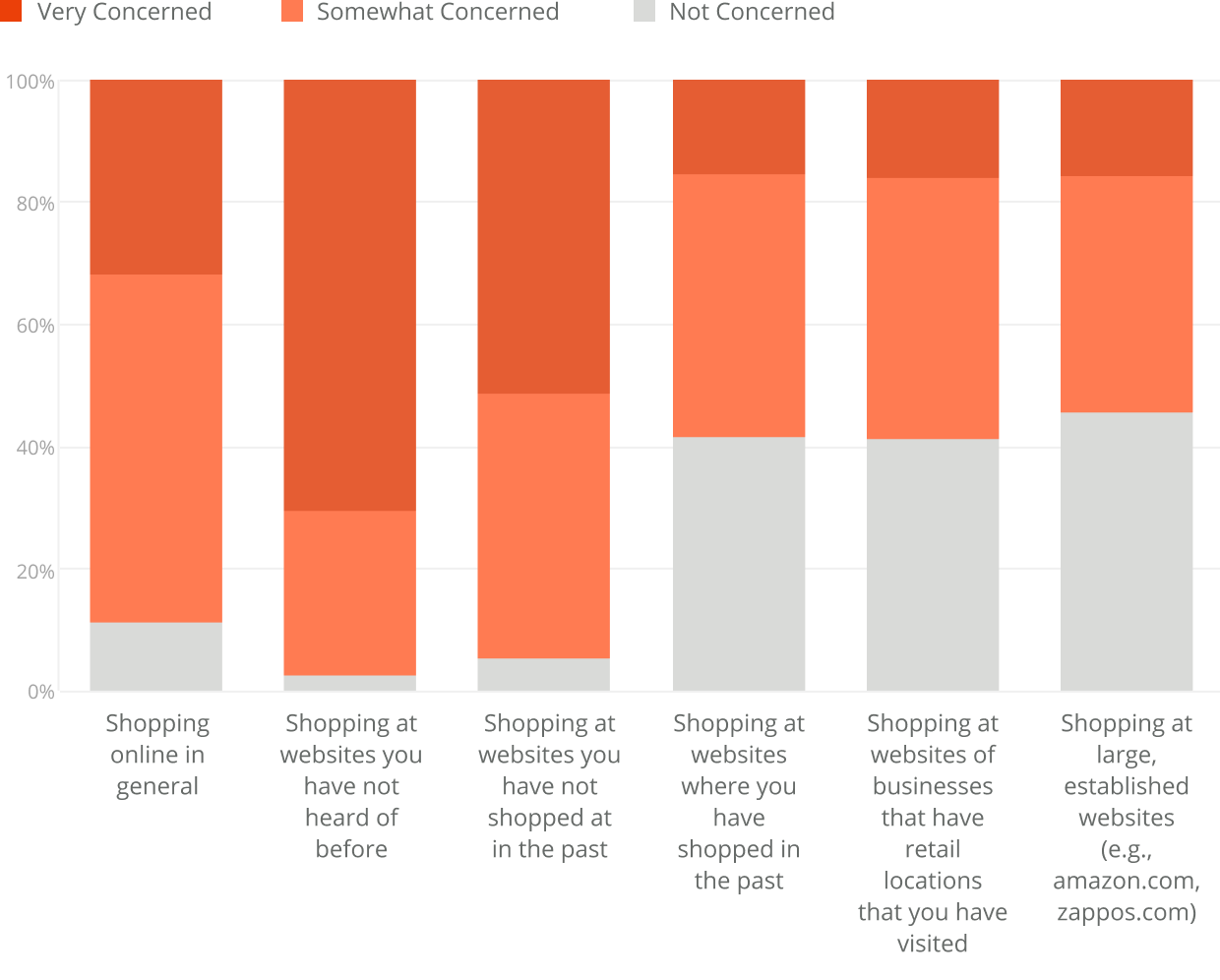
For the fourth consecutive survey, 97% of consumers expressed concerns about shopping on unfamiliar sites, with over 50% describing themselves as "very concerned." Sites that consumers haven’t shopped at before aren’t much better off, with 95% reporting concerns. As expected, more familiar sites fare much better in terms of trust.
Stolen credit cards remain the top concern, but business legitimacy is catching up
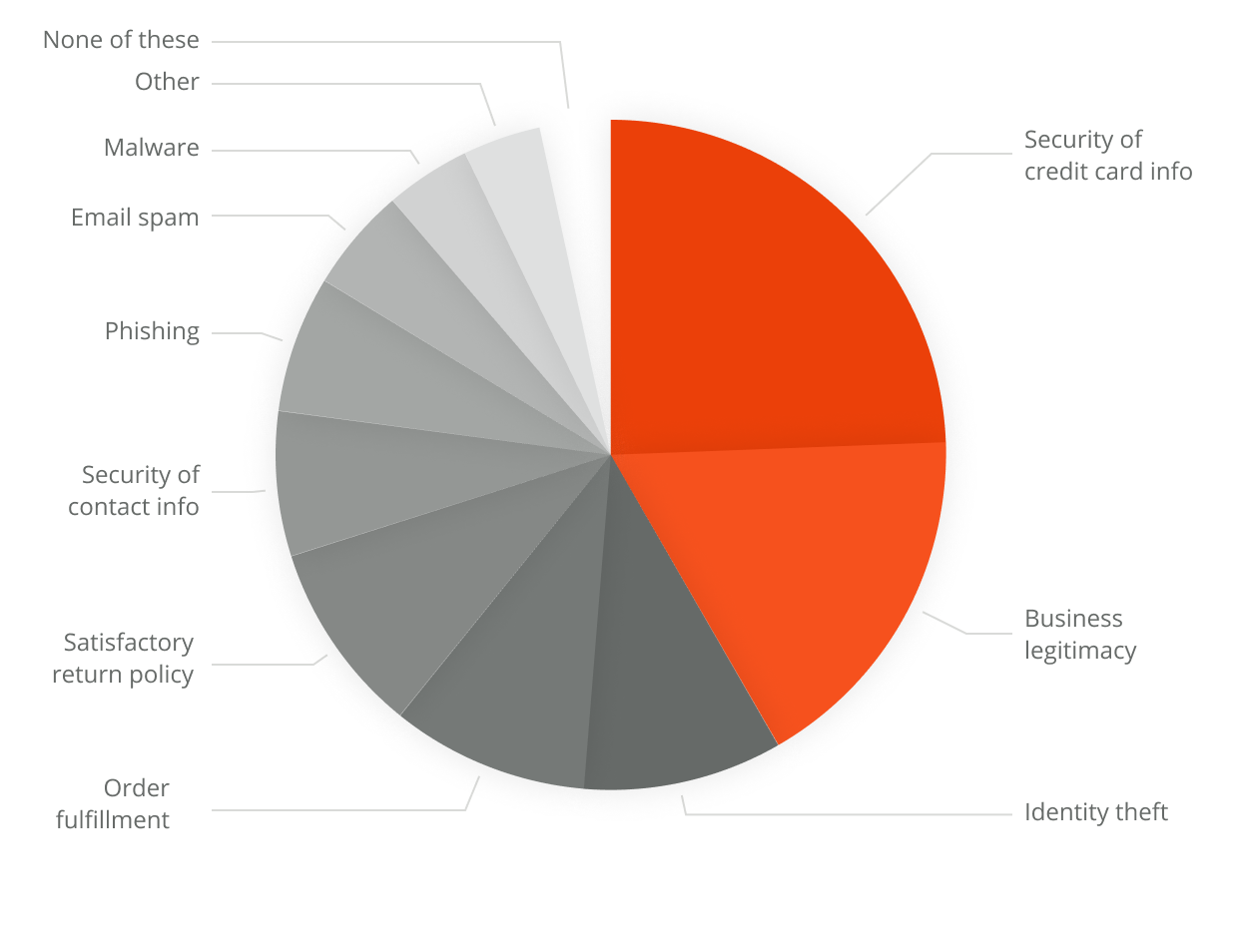
When asked about their biggest concern while shopping online, 24% of consumers cited stolen credit card information, a slight dip from previous years. Meanwhile, concerns about business legitimacy have grown, reaching 17% this year, up from 14% in 2022 and 13% in 2020.
Concerns around identity theft continue to rise

Back in 2018, only 74% of consumers worried about identity theft when shopping online. This year, that number has ballooned to 90%. With Americans losing $23 billion to identity fraud last year, it’s no wonder this concern is on the rise.
90% of consumers report that they've abandoned a purchase due to concerns
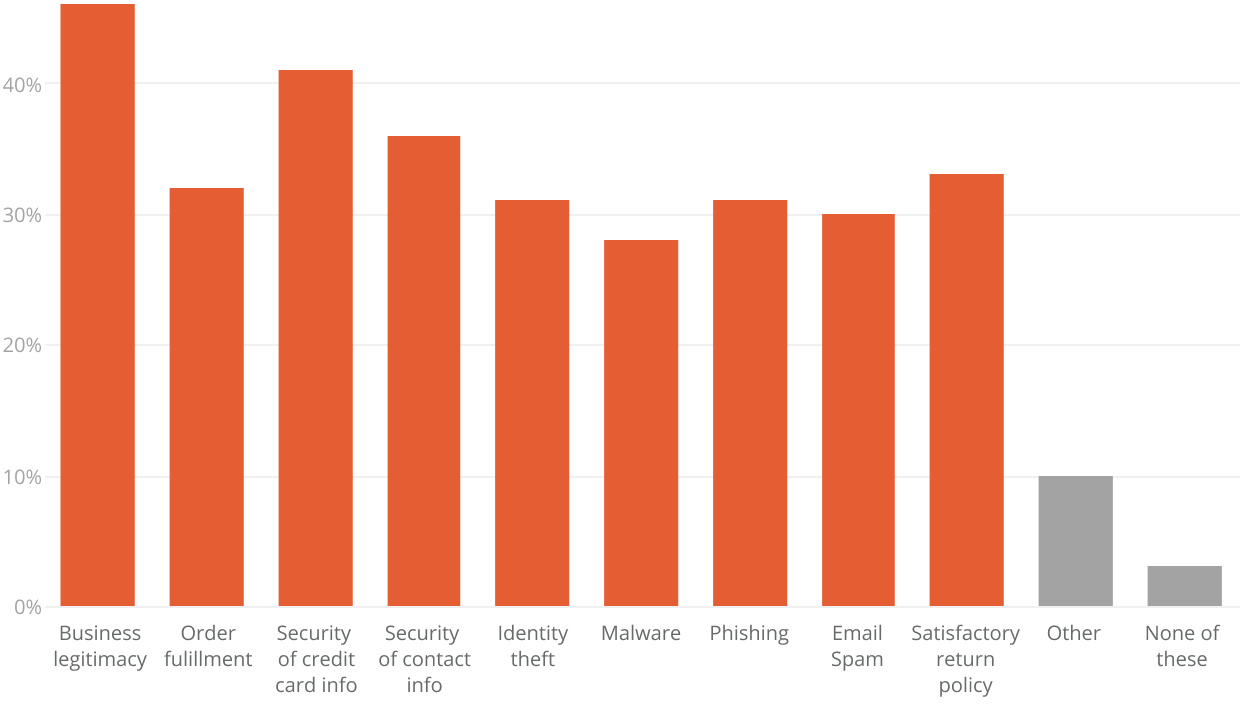
Business legitimacy is the top reason consumers abandon their carts, with 46% citing it as a concern. Worries about credit card information come in second at 41%. Only 10% of consumers said they hadn’t abandoned a cart due to these concerns, down from 17% in 2022, highlighting the ongoing importance of addressing visitor concerns for ecommerce merchants.
AI is the new concern on the block
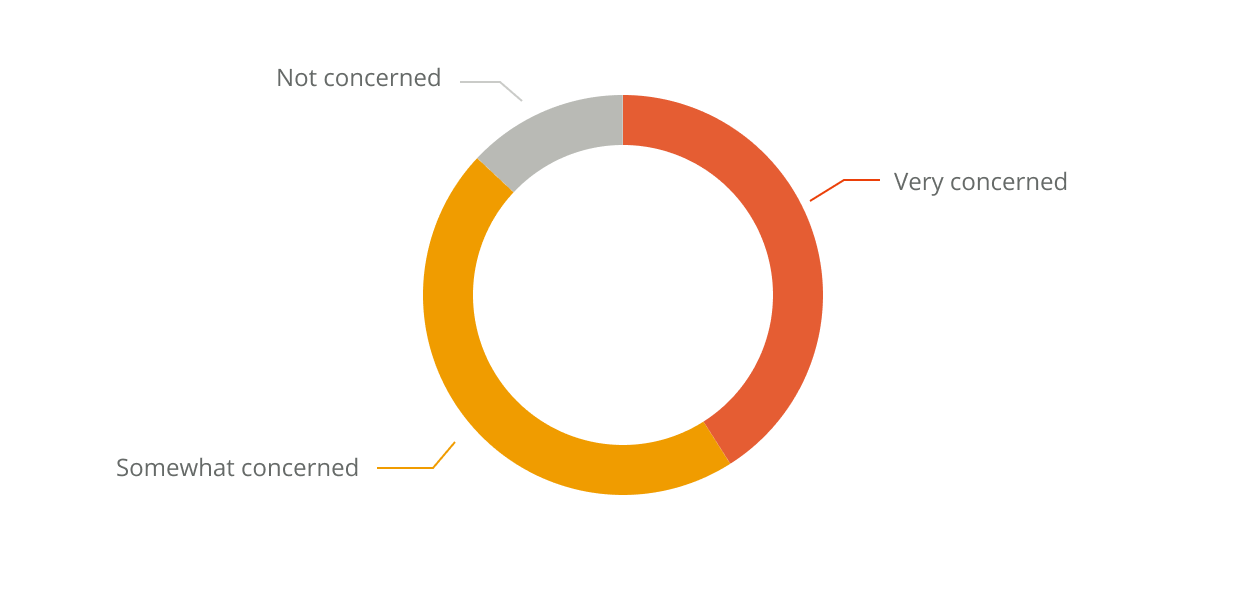
AI seems to be everywhere these days, and consumers are noticing. We asked how concerned they were about the potential misuse of AI when shopping online, and 46% said they were somewhat concerned, while 41% said they were very concerned. We’re curious to see how these concerns evolve and are looking at ways to help alleviate them as AI continues to become more integrated into our daily lives.
Lack of trust badges remains a concern for many visitors
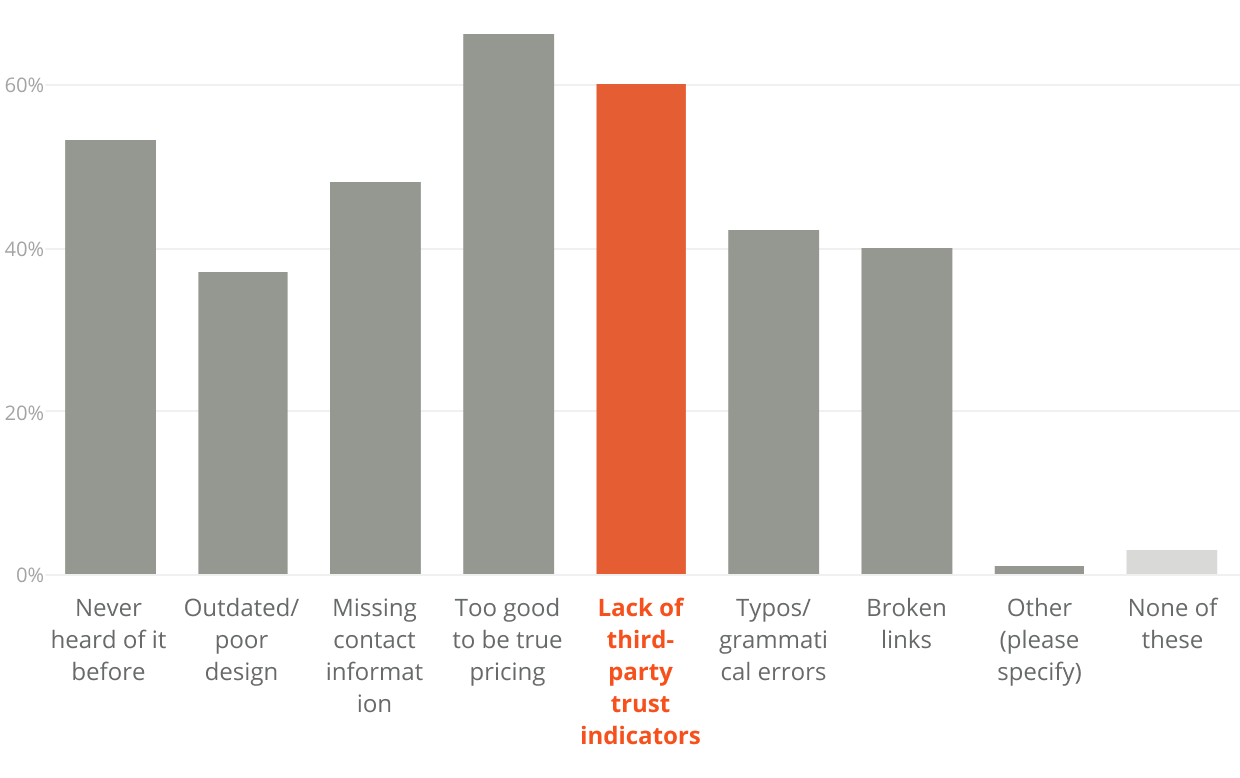
Over 40% of respondents said that a lack of third-party trust indicators like certifications, badges, and logos makes them wary that a site might be fraudulent. Many sites use third-party services to prove their legitimacy, so when consumers don’t see these trust indicators, it raises a red flag.
Third-party trustmarks can help alleviate concerns on unfamiliar sites
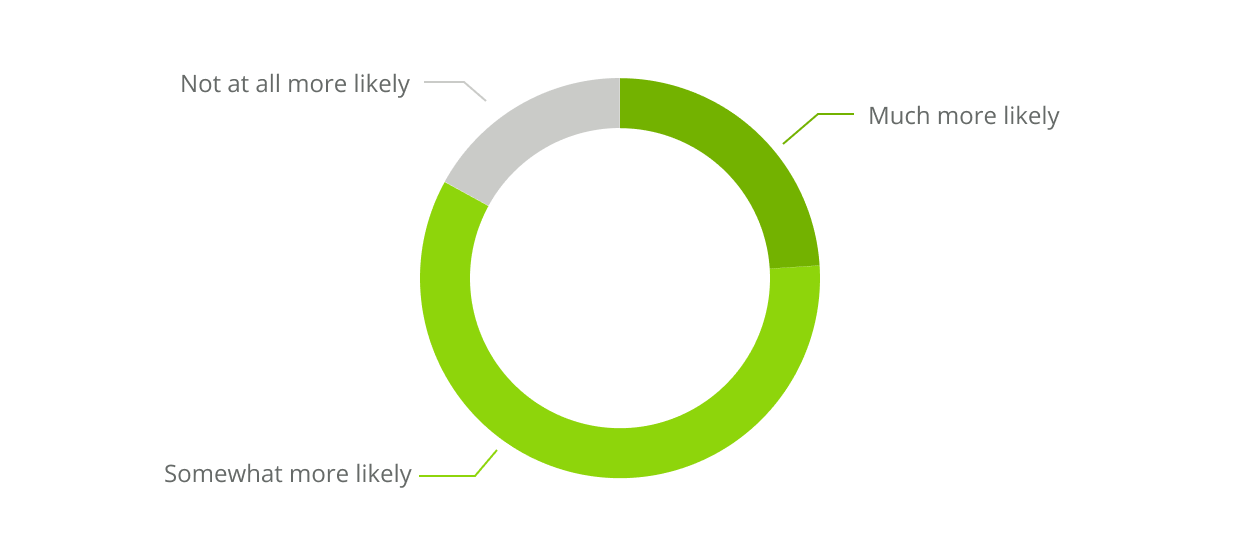
A significant 83% of consumers told us they would be more likely to trust a site that prominently displays a third-party trust badge compared to one that doesn’t.

We wanted to know if consumers would be more likely to complete a purchase on an unfamiliar site if it showed proof that a third party had verified some common claims. Our survey results were clear: TrustedSite certifications make a big difference. In fact, 9 out of 10 consumers said they’d be more likely to buy from a site that displayed these certifications.
Among the various certifications available, three stood out as particularly influential: Data Protection (52%), Verified Business (48%), and Certified Secure (43%). While these topped the list, it’s important to recognize that there are many different types of consumers, each with their own unique concerns. The more concerns you address, the better off you’ll be. By earning a variety of certifications, you can cater to a broader audience, ensuring that each shopper feels confident and secure when making a purchase on your site.
Wrapping up
Trust is crucial in the world of ecommerce, and our 2024 survey underscores just how important it is for site owners to address consumer concerns. From fears about stolen credit cards and identity theft to worries about business legitimacy and the misuse of AI, shoppers have a lot on their minds.
As you work to build and maintain trust with your customers, remember that addressing their concerns at every stage of their journey is key. With the right strategies and trust indicators in place, you can boost confidence, reduce cart abandonment, and ultimately drive more sales. For a deeper dive into consumer trust and how to enhance it across your site, download our ebook Consumer Trust Across the Ecommerce Funnel and check out our State of Ecommerce Trust in 2024 infographic.